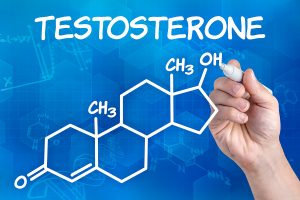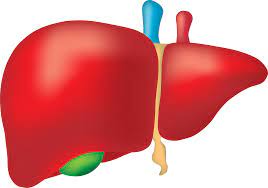
Testosterone Cream and Testosterone Injections:
The Anti-Aging Benefits of Testosterone Replacement Therapy
Male Testosterone Levels drop at a slow yet unceasing rate beginning in the mid to late twenties. There has been significant clinical and scientific debate regarding how Low Testosterone affects well-being as we grow older. Still, it is painfully evident that Low-T impacts the male body in incredibly damaging ways.
What is Andropause?
The clinical term for the slow and gradual decline of hormones in the male body that occurs in the thirties and forties is known as andropause.
Although Andropause is primarily regarded as a Testosterone Deficiency, other hormones, such as Human Growth Hormone, also decline at a similar rate.
One of the primary sources of debate in the medical community is regarding exactly who needs Testosterone Hormone Replacement Therapy and when is the correct age to begin treatment.
The American Society of Andrology has a simply stated opinion on Testosterone HRT. They believe that Testosterone should be prescribed only when two conditions are met:
The first condition is that the patient must be experiencing a clinically low level of Testosterone. This can be discovered via diagnostic blood testing.
The second condition is that the patient must be experiencing sure signs and symptoms of Testosterone Deficiency.
Some patients have relatively low levels of Testosterone yet are still able to function normally. Other patients have Testosterone Levels that are in the low range of normal but continue to have significant symptoms of Low-T.
Testosterone Hormone Replacement Therapy should be prescribed when a patient has both measurably low levels of Testosterone while also experiencing reduced quality of life as a result of that deficiency.
Who Needs Testosterone Replacement Therapy?
The American Association of Clinical Endocrinologists has criteria for who qualifies for Testosterone Replacement. The AACE regards Testosterone Deficiency as a medical term known as Hypogonadism.
Hypogonadism refers to any disorder that hinders the production of sex hormones such as Testosterone and Estrogen and other hormones such as DHEA and Progestin. The AACE considers Male Hypogonadism to be a Serum Testosterone level beneath the bottom limit, considered average for healthy young adults.
Serum Testosterone level beneath the bottom limit, considered average for healthy young adults.
The AACE signifies an apparent change in the scientific consensus over the past thirty years. Initially, scientists and researchers believed that the slow decline in Testosterone Levels with age was a normal and healthy natural progression.
After a generation of research, however, scientists have FINALLY agreed that although the slow decline in Testosterone levels with age is average, it is in no way, shape, or form healthy. It hinders male physical, cognitive, and sexual health.
The AACE believes that any patient with below normal Testosterone should be eligible for a Testosterone Hormone Replacement Therapy Trial. They also believe that patients with Testosterone Levels near the bottom of the normal range should also be allowed to try Testosterone Replacement.
Free and Total Testosterone
What is generally not entirely agreed upon is exactly what Testosterone measurement should be, the accepted line at which a male is considered to have Low-T. There are no standards yet regarding Female Testosterone Levels and Testosterone Replacement Therapy. There are two ways in which Testosterone levels are measured:
Free Testosterone This form of Testosterone is fully available to the body biologically and is not bound to any molecules.
Total Testosterone Total Testosterone refers to all Testosterone within the body, whether that Testosterone is free in the bloodstream or active and molecularly bound.
What is Considered Low Testosterone?
For physicians in the United States, Total Testosterone below three hundred to four hundred ng/dl is considered Low-T in early morning tests. Although this is the American standard, this is a very imprecise value because normal Testosterone levels change throughout the lifespan. Also, the range listed above is not calibrated for age.
When medical researchers determined typical Testosterone values, they averaged Testosterone Rates for males of all ages, including very old patients who naturally have incredibly diminished Testosterone Values. For this reason, 300 ng/dl might be perfect for a sixty-five-year-old male, but very deficiency for a guy that is only thirty.
Symptoms of Low-T
It can be quite challenging to diagnose Low-T in older men simply by the symptoms alone. The symptoms and signs are not specific to Low Testosterone. These are a few of the symptoms of Low Testosterone:
Loss of Sex Drive A reduced desire for sexual activity
Reduced Memory Decreased ability to recall memories or optimally utilize short-term memory
Increased Fatigue and Decreased Endurance Interfere with a person's ability to engage in physical activity
Reduced Bone Mineral Density Over time, reduced BMD can lead to life-threatening Osteoporosis and general frailty
Muscle Atrophy Without Testosterone, the male body is unable to sustain larger muscles
This is just a tiny subset of the symptoms of Testosterone Deficiency. Still, it shows that the symptoms of Testosterone Deficiency are often and easily confused with the general characteristic changes of the aging process.
Forms of Testosterone Hormone Therapy
There are many effective forms of Testosterone Hormone Replacement Therapy, including:
Transdermal Patches
Intramuscular Injections
Dermally Implanted Pellets
Gels and Creams
Sprays
Side Effects of Testosterone Hormone Replacement Therapy
There are a couple of minor side-effects associated with Testosterone Replacement Therapy. These are:
Increased Production of Oil by the Skin
Development of Acne
Suppression of Fertility
A small minority of patients suffer from more severe side effects such as:
Agitation of Existing Cancerous Prostate Growth Testosterone HRT does not cause cancer but may worsen existing prostate cancer.
Worsening of Existing Sleep Apnea Among patients who are obese or suffer from Chronic Lung Disease, Testosterone can sometimes have the unintended effect of worsening sleep apnea. For most patients, Testosterone can reduce the occurrence of sleep apnea, but Testosterone and Sleep are intricately related, and under particular circumstances, Testosterone Replacement Therapy can agitate Sleep Apnea.
Higher Levels of Hematocrit Hematocrit is a natural ingredient in the blood which acts as a thickening agent. There is evidence that Testosterone Hormone Replacement Therapy sometimes leads to increased Hematocrit levels, which can increase the risk of certain cardiovascular conditions. This phenomenon most often occurs in older patients who use Testosterone HRT, which causes minimal risk with close monitoring. If Testosterone Replacement leads to unacceptably high Hematocrit levels, the dose can be adjusted to alleviate the condition while also providing the benefits of Increased Testosterone Levels.
Testosterone and Cancer Screening
Because Testosterone HRT can complicate existing prostate cancers, it is vital that patients planning to undergo Testosterone treatments be tested for existing Prostate Tumors. There are two means by which patients are tested for abnormal prostate growth before beginning  Testosterone Replacement Therapy.
Testosterone Replacement Therapy.
Before treatment begins, it is recommended that patients undergo a rectal prostate exam and have their Prostate-Specific Antigen (PSA) levels checked before treatments begin. After Testosterone HRT has begun, PSA and Hematocrit levels will be monitored closely to maximize the therapy's safety.
Medical Benefits of Testosterone Hormone Replacement Therapy
Testosterone Hormone Replacement Therapy produces a number of significant benefits. Patients suffering from Low Testosterone are at a significantly increased health risk for several physiological disorders. Below is a short list of benefits of Testosterone Replacement Therapy:
Lower Risk of Type-Two Diabetes Healthy Testosterone Levels is tightly correlated with a healthy pancreas. Testosterone plays a vital role in the proper utilization of insulin, and Low-T can significantly enhance the risk of Diabetes in both obese and normal-weight patients.
Reduced Risk of Osteoporosis Testosterone plays a vital role in Bone Remodeling in Men. Without sufficient Testosterone Levels, the bones begin to leech calcium and significantly weaken throughout a number of years. By the time osteoporosis has been diagnosed, the damage has already been done, and the bones are slow to repair themselves.
Increased Cardiovascular Health Testosterone helps keep cholesterol levels balanced, lowering LDL Cholesterol Levels while increasing HDL. Testosterone also regulates proper Triglyceride metabolism.
Lower Levels of Anxiety and Depression Testosterone significantly impacts overall mental health in ways we recognize but are just beginning to understand. Low-T is correlated with increased cortisol levels. High Cortisol is one of the primary factors for elevated levels of anxiety. High anxiety leeches the body's ability to produce the hormones that contribute to a happy and healthy mentality, reducing the body's ability to navigate stressful situations.
Decreased Chance of Alzheimer's Disease Low Testosterone Levels is an independent predictor of Alzheimer's Disease. Simply having Low-T increases the risk of being diagnosed with this horrendous disorder. Although the mechanism by which Alzheimer's and Testosterone are interconnected is not fully understood, there is promising evidence that Testosterone Replacement Therapy may reduce the risk of Alzheimer's or delay the progression of the disease.
Healthier BMI Testosterone can both generate enhanced muscle fibers and increase metabolism. The increased metabolism provided by Testosterone targets adipose fat tissue, which is generally the hardest to eliminate in the human body.
Over time, and especially with a healthy diet and workout regimen, Testosterone can completely reshape the body, providing a more aesthetically pleasing figure.
Overall Reduced Mortality Risk All of the above benefits (and other benefits not discussed in this brief synopsis) combine and have the cumulative effect of reducing overall mortality risk. This means that as a result of Testosterone HRT, you have a much higher risk of living a longer and healthier life as a direct result of the treatment you have been provided.
Although there have yet to be expanded longitudinal studies regarding the long-term effectiveness and safety of Testosterone Hormone Replacement Therapy, there is significant clinical evidence that Testosterone HRT is a safe and effective treatment.
In addition, there have been a number of small-scale trials that have shown that the long-term benefits outweigh the costs for the majority of patients treated for clinically low levels of testosterone.
What is Testosterone?
Testosterone is the most potent of the sexual hormones, otherwise known as androgens. Most people like to refer to Testosterone as the man hormone, but both sexes need Testosterone to function correctly. Women produce significantly less Testosterone than men, but Testosterone is still needed to maintain optimal hormone balance. Testosterone is one of the members of a collection of compounds known as anabolic steroids.
Testosterone also shares many molecular characteristics with cholesterol, though the two molecules affect the human body in very different ways. The human body produces Testosterone through chemical reactions with a precursor molecule known as DHEA. T
human body produces Testosterone through chemical reactions with a precursor molecule known as DHEA. T
estosterone is manufactured most abundantly by the Testes in men, but the adrenal cortex also produces Testosterone in much smaller amounts.
In women, the placenta and ovaries produce Testosterone, albeit at a significantly lower rate than the testes are capable of. Both sexes can also produce testosterone due to chemical reactions with cholesterol.
Testosterone is a required ingredient for the production of a male in the womb. In the womb, female characteristics, in many ways, are default.
Testosterone is necessary for the fetus to develop male differentiation, including but not limited to the development of a penis and testes.
Testosterone and Puberty
Puberty is the result of a combination of increased Testosterone levels and increased Human Growth Hormone Levels. Testosterone causes male secondary sex characteristics to develop, while Human Growth Hormone induces changes in height in patients with healthy hormone levels. Testosterone essentially causes a boy to become a man. Facial hair starts to grow, along with body hair. The voice alters and deepens as the result of an influx of Testosterone.
Testosterone also plays a significant role in muscle development, so men naturally have larger muscles than women. Testosterone creates a biological situation where it takes less effort to build more muscle. Women have a peak muscle capacity and size that cannot be breached under normal circumstances.
The Recent History of Testosterone Hormone Therapy
For over twenty years, athletes of all shapes, sizes (and sexes) have utilized BioIdentical Testosterone HRT to improve their performance in the weight room, on the field, and on the track.
The Food and Drug Administration does not approve Testosterone Replacement Therapy for use as a Performance Enhancing Drug. Still, after a generation of field testing, it should be more than evident that testosterone injections work well.
Testosterone Replacement is also widely recognized as a valuable tool to maintain optimal health and ward off the effects of aging. Although Testosterone HRT is not approved as a strength training and bodybuilding tool, the FDA has approved the drug for use to treat clinically low Testosterone levels. Remember, as we age, our testosterone levels naturally decline.
When Testosterone levels decline to the extent that overall health and well-being become adversely affected, the clinical term for this occurrence is Andropause. Testosterone has been shown to restore youthful vigor, energy, and endurance for patients who suffer from this life-changing disorder.
Testosterone Becoming a More Widely Accepted Therapy
As time passes and people learn more and more about Testosterone, the consensus about Hormone Treatment rapidly changes. What people used to think of as a niche therapy for individuals interested in strength training and bodybuilding is now more appropriately understood as a means to restore normal and healthy function in aging men.
Testosterone Hormone Replacement is even recognized as a valid treatment for women with particular hormonal issues. For women, Testosterone HRT has been shown to improve libido and alleviate the effects of menopause. There is even some evidence that the treatment may be able to slow the progression of menopause, although clinical research is incomplete in this regard.
 Bio-Identical Testosterone Hormone Replacement Therapy is a valid medical treatment and therapy that a doctor can prescribe to any patient over the age of thirty who has been clinically diagnosed with Testosterone Deficiency.
Bio-Identical Testosterone Hormone Replacement Therapy is a valid medical treatment and therapy that a doctor can prescribe to any patient over the age of thirty who has been clinically diagnosed with Testosterone Deficiency.
For men who feel that Low Testosterone is getting in the way of their life, Testosterone Hormone Replacement Therapy is a valid and safe way to extend the vigor of youth and boost overall life quality.
We encourage you to seek out the opinions of patients who decided to utilize Testosterone Hormone Replacement Therapy. We are sure you will hear almost nothing but success stories regarding amazing Testosterone Supplementation.
When in our lives do Testosterone Levels Decline?
Testosterone levels hit their peak when we are in our late teens and early twenties. This is the period in which we are at our healthiest and most robust, and a lot of it has to do with the healthy Testosterone levels we experience during this era of our lives. Beginning in the late twenties or early thirties, however, Testosterone Levels start to decline.
This decline will begin to be recognizable early for many patients, although other patients experience the symptoms less precipitously. Some patients may feel they may be candidates for Testosterone Replacement in their early thirties. In contrast, others may have innately higher Testosterone levels or simply respond more actively to lower levels of Testosterone.
Testosterone plays a significant role in physiological health throughout the human body. Testosterone is central to a number of different biological tasks, including muscle development, bone maintenance, sex drive, sexual function, and central nervous system health. In addition, Testosterone helps maintain a healthy prostate and optimizes the function of bone marrow cells deep within bone tissue.
Benefits of Testosterone Supplementation
Testosterone Hormone Replacement Therapy benefits male patients in a number of different and beautiful ways. After a single cycle of Testosterone Replacement, patients return to us and tell us that they feel healthier, stronger, and more attractive.
They often exclaim that they feel as though they have had years added to their lives. These aren't just more years; they are better years. Testosterone HRT helps patients extend the well-being of youth and early adulthood, allowing them to experience life in a fuller and happier way.
Testosterone Hormone Replacement Therapy not only does this directly through physiological changes that occur as a result of supplementation but indirectly as well. Increased energy helps men go out and get more done.
Testosterone encourages patients to go out and exercise more by helping the body get into shape more readily in response to exercise and physical activity. Testosterone not only has the potential to alleviate anxiety and depression directly, but men also look at themselves in the mirror and realize that they both look and feel better, which invites them to capitalize on these physical and mental changes.
If you feel that Testosterone Deficiency s negatively impacting your life, Testosterone can do all this for you. Today, Testosterone Hormone Replacement Therapy is quickly and simply self-administered so that you can experience the benefits of Testosterone Gels, Patches, or Injections without needing a continuous medical intermediary.
To experience the benefits of Testosterone Supplementation, you only need to meet with a physician every once in a while. You must undergo physical and blood testing before initiating therapy. Every six months or so, you must undergo diagnostic testing to ensure everything is going exactly according to plan. Besides this, you will ultimately be responsible for all Testosterone Administration aspects.
The Truth about Testosterone
Testosterone Hormone Replacement Therapy isn't about flooding your body with Testosterone to have superhuman muscles. Testosterone HRT is simply about restoring optimal hormone balance by providing the body with Testosterone Levels that mimic those produced in your early adulthood when you were in peak physical and mental shape.
Testosterone has been shown to have the capacity to alleviate and, even in certain circumstances, reverse the physiological decline of mind and body, which causes older men to lose their energy, strength, and libido.
Testosterone has been shown to improve muscle tone by stimulating the amplified development of lean muscle fibers while also improving capacity for exercise and reducing fatigue. The various changes caused by restoring healthy Testosterone levels lead to an improved outlook on life and enhanced self-perception.
Testosterone and Sexuality: A Boon for Both Men and Women
Testosterone is vital for the sex drive of both males and females. Testosterone levels drop in both men and women with age. This change occurs more gradually in men due to Andropause, but in women, this gradual decline can become a severe and sharp decline due to menopause. For both sexes, declining Testosterone levels are linked directly to reduced interest in sex and diminished performance in the bedroom.
Historically, we have considered sex to be the realm of the young and fertile. Men and women used to think that reduced libido was just a natural consequence of the aging process-A process, which was thought to be unavoidable.
This archaic view of sex is quickly changing, however. You aren't doomed to an unsatisfying and unfulfilling sex drive just because you're getting a little  older. It's not your fault that your libido is in decline; it's simply the result of a chemical imbalance of Testosterone.
older. It's not your fault that your libido is in decline; it's simply the result of a chemical imbalance of Testosterone.
Today, we fully recognize that sex drive and Testosterone production are intricately linked in males and females. Testosterone Restoration can help both sexes get back in the saddle in a way that pleases both partners.
There is no reason to give in to the hopelessness that shrouds an unhappy bedroom. For many patients, Testosterone HRT can play a central role in preserving or restoring sexual excitement and ability throughout aging.
Before you think about using drugs like Viagra or Cialis, consider that your sexual dysfunction may result from a more profound physical complication hindering your life in other significant ways.
Effective Testosterone Hormone Treatments can help you bring back the joy of sex that you first experienced in your teens or twenties while also allowing you to utilize the skill and talent that you've developed in the years that have passed since that first time. Some patients even say that their sex life is better than it has ever been in their lives with the intervention of Testosterone Patches or Injections.
For happily married couples, it may be wise to consider undergoing Testosterone Hormone Replacement together simultaneously to ensure that the two of you can keep up with one another.
Declining Testosterone levels significantly affect the sexual excitement of both sexes, so if both of your flames are restored simultaneously, this has the most potential to create the most significant and brightest fireworks. Imagine looking at your wife and being transported back to the day of your first kiss. Bio-Identical Testosterone has the potential to restore that feeling of love and desire.
Testosterone Replacement Becoming More Mainstream
Over the last decade, doctors have experienced a significant boom in patient interest in Testosterone. This is because as time has passed, patients are becoming increasingly enlightened about the various benefits of Testosterone Replacement. In addition, clinical research continues to shed light on the safety and effectiveness of the drug and encourages doctors to recommend Testosterone Replacement.
In the past, Testosterone Replacement was only provided via injection, but today numerous methods can efficiently transmit Testosterone into the human body. Testosterone Injections are still popular among those who wish to gain the most from their daily workout. Still, testosterone creams and patches have become incredibly popular for those most concerned with their overall health and wellness.
Testosterone Injections provide an enormous burst of Testosterone, which helps patients work out harder and achieve more significant gains. Still, Testosterone patches and creams more effectively imitate the human body's natural processes, helping the body remain in an enhanced state of hormonal balance. All these methods are great ways to restore your Testosterone Balance, and your choice depends on your hierarchy of goals and personal circumstances.
Today, men are becoming increasingly aware that Testosterone Deficiency plays a significant role in the aging process and are starting to become more comfortable with the idea that Testosterone Hormone Replacement Therapy might be the right choice for them to set things right with their bodies. Testosterone Deficiency adversely affects male health, mind, body, and soul.
Andropause vs. Menopause
As we mentioned before, women experience a hormonal decline severely and steeply unknown to males yet inevitable among females. Males experience this change more slowly, so we are just now fully realizing the implications of andropause. So far, the scientific study seems to reveal andropause as a disorder with two primary causes: hypopituitarism and hypogonadism.
Testosterone is a form of hypogonadism, but hypogonadism can refer to a deficiency of any of the spectrum of both male and female sex hormones and is not limited to Testosterone and Estrogen. Hypopituitarism is a term that generally refers to Human Growth Hormone Deficiency.
Both HGH and Testosterone rates decline at similar rates, and both hormones play a significant impact in preserving optimal health and function. Many patients are deficient in both Testosterone and Human Growth Hormone concurrently. Many physicians recommend utilizing both Testosterone Hormone Replacement Therapy and HGH Hormone Replacement Therapy to more fully balance a patient's hormone profile.
Undergoing both forms of hormone replacement simultaneously can amplify the results of both therapies. HGH and Testosterone affect many of the same physiological systems, and for this reason, restoring both hormones at the same time can produce even more impressive results.
The Most Noticeable Benefits of Testosterone
Various aspects of aging and ailments associated with the aging process that the medical community once assumed were just unavoidable parts of the aging process. Today, as the body of medical knowledge continues to grow, we now recognize that many of these physiological changes that take place with age are directly correlated with wavering levels of Testosterone or other hormones such as Human Growth Hormone.
Most aspects of the aging process associated with declining Testosterone levels are shown to be highly and effectively treatable with the help of Testosterone Supplementation. Testosterone Replacement leads to a number of fantastic benefits, including:
Increased Muscle Size Testosterone increases the rate muscle fibers grow due to exercise.
Higher Muscle Strength Testosterone increases the size of muscles and the physical capacity for work within each muscle fiber.
Enhanced Energy Levels Testosterone can restore your ability to survive the day without draining you of your vigor and intensity.
Reduction in Body Fat Healthy Testosterone balance encourages a healthy metabolism which helps you burn fat more quickly and maintain a more attractive appearance. A healthy testosterone level promotes a thinner waistline and can help you eliminate that unwanted potbelly.
Increased Capacity for Physical Activity Testosterone not only improves the results of exercise but can also increase your ability to endure longer and harder workout sessions.
Low-T and Cholesterol
In the past, scientists hypothesized that Testosterone HRT had the negative side effect of increasing cholesterol levels. More recent research has negated this hypothesis, however. In the past, the form of artificial Testosterone was imperfect and, as a result, harmed cholesterol levels. Since Testosterone and Cholesterol share such similarities on a molecular level, artificial molecules that attempt to mimic the effects of Testosterone can also affect cholesterol.
This early, artificial form of Testosterone also affected cholesterol levels because the imperfections within this early form of Testosterone decreased the ability of the liver to function correctly, thus contributing to increased cholesterol levels.
 The liver is the organ primarily responsible for regulating cholesterol, and any malfunction of this vital hormone will immediately impact serum cholesterol. Since those original studies, however, scientists have perfected Bio-Identical Testosterone.
The liver is the organ primarily responsible for regulating cholesterol, and any malfunction of this vital hormone will immediately impact serum cholesterol. Since those original studies, however, scientists have perfected Bio-Identical Testosterone.
Bio-Identical Testosterone is not just a molecule designed to mimic the effects of Testosterone. Bio-Identical Testosterone is the equivalent of Testosterone produced naturally by the human body.
The two molecules are functionally equivalent. The reason the Bio-Identical Testosterone is superior to natural forms of Testosterone is simply a matter of price and availability. It is far cheaper to manufacture Bio-Identical Testosterone than to harvest actual Testosterone.
This drives costs down, making it more financially viable to use Testosterone as an Anti-Aging Therapy. In addition, the increased availability of Testosterone via Bio-Identical Testosterone means that Testosterone can be ethically prescribed for more purposes and is not limited simply to those with the highest medical need for the hormone.
More recent studies show that testosterone is beneficial by restoring healthy cholesterol levels and benefitting overall cardiovascular health. Two primary forms of cholesterol are associated with human health.
LDL and HDL Cholesterol and Testosterone
LDL Cholesterol is what is considered bad cholesterol. Although a certain level of this form of cholesterol is necessary for human function, elevated levels of LDL Cholesterol are associated with numerous adverse health conditions ranging from hardened arteries to congestive heart failure to stroke. Bio-Identical Testosterone has been shown to reduce LDL levels in the bloodstream.
In the last generation, we have learned that the second form of cholesterol, HDL Cholesterol, positively impacts heart health, reducing the risks of the cardiovascular complications LDL Cholesterol promotes.
Testosterone Hormone Replacement Therapy seems to aid liver function by restoring optimal hormone balance and allowing the liver to maintain a healthy balance between the two forms of cholesterol.
Estrogen Replacement Therapy has also been shown to improve HDL and LDL Cholesterol rates in women. Still, Estrogen HRT is not considered a long-term solution because extended use of Estrogen Hormone Treatments has been correlated with an increased incidence of breast cancer.
The Future of Testosterone Research
Although it is clear that Testosterone Hormone Replacement Therapy has the potential to change a man's life in a number of beneficial ways, we are just beginning to fully understand the total capacity of this vital hormone to protect and promote optimal health throughout the lifespan. Every year we learn of breakthroughs regarding this revolutionary form of Hormone Replacement Therapy.
As the body of knowledge regarding Testosterone and its benefits increase, physicians and researchers will continue to find new and novel ways to improve the health of their patients through the utilization of Testosterone HRT.
Where it was once postulated that Testosterone only affected the mind via libido, it is now apparent that Testosterone plays a significant role in numerous cognitive functions from memory to attention. Where Testosterone was once only considered to enhance the physical qualities of the male physique, it is clear that Testosterone plays a central role in the health and function of internal systems such as the liver and cardiovascular symptoms.
If you feel you may be a candidate for Testosterone Hormone Replacement Therapy, we encourage you to try the treatment yourself. If you suffer from a legitimate Testosterone Deficiency, we are confident that Testosterone HRT can improve your life in ways you might not even conceive.
As time has passed, the methods of Testosterone Replacement Therapy have become more nuanced and compelling. In the not-so-distant past, Testosterone was often prescribed to be administered via pill and intravenous injection. Neither of these methods of Testosterone Replacement Therapy is effective or even safe.
Avoid Testosterone Pills and Intravenous Testosterone
We recommend you be wary of any dealer which attempts to sell Testosterone Pills. Testosterone pills are generally cheaper than other forms of Testosterone, but there is no proof that they provide any real benefit to the consumer.
The digestive system generally breaks down any complex hormone into more straightforward protein configurations, and Testosterone is broken down significantly by the stomach. High levels of some of these proteins can even damage the liver or hinder its function, potentially affecting your short-term and long-term health.
Modern forms of Injectable Bio-Identical Testosterone are designed to be delivered intramuscularly. This means that the injections are delivered deep into the muscles. Early forms of Testosterone Injections were designed to be delivered intravenously. Still, it was discovered that this was an inefficient and inaccurate way of restoring healthy and normal Testosterone levels.
Intramuscular Testosterone Injections via Testosterone Cypionate and Testosterone Enanthate can more accurately mimic the body's natural release of Testosterone. In contrast, Intravenous Testosterone Injections were imprecise, and the effects of an individual injection were short-lived. Intramuscular Formulations of Testosterone can be dangerous if injected into the veins, leading to potentially significant health complications.
This is because Intramuscular Testosterone Injections are delivered via an oil solution.
This oil solution interacts poorly with the blood and is not intended to be delivered into the bloodstream. A small amount of Intramuscular Testosterone injected into the veins can cause temporary coughing fits as the oil is disseminated into the bloodstream. A large dose can lead to a condition known as a pulmonary oil embolism which can be potentially fatal if not treated immediately and adequately.
Follow Testosterone Administration Instructions
This is why it is vital to follow proper injection protocol. Testosterone Injections are entirely safe if administered responsibly, and there is a simple process for discovering if you have accidentally nicked a blood vessel with the tip of your needle, which eliminates all risks of accidental intravenous contact.
It may seem obvious by now, but we do not offer Testosterone Hormone Replacement Therapy in the form of Pills or Intravenous Injections. We sternly recommend against using Testosterone Pills, and we feel that Intravenous Testosterone Injections are far inferior to Intramuscular Injections.
The forms of Testosterone Hormone Replacement Therapy we provide are Testosterone Gel, Testosterone Creams, Testosterone Patches, Intramuscular Testosterone Injections, Testosterone Transdermermal Pellets, and Testosterone Transdermal Sprays.
Many people believe that Hormone Replacement Treatments require frequent doctor's appointments, but this could be no further from the case. We can prescribe Testosterone Replacement Therapy remotely via our national network of affiliated physicians, so if you are eligible for Testosterone treatments, we can quickly and confidentially arrange all of the necessary steps toward acquiring safe and legal Testosterone Treatments. Besides the initial visit to our affiliate physician and subsequent hormone monitoring, the rest of your Hormone Replacement Therapy treatment can be performed in the solitude and privacy of your own home.
Testosterone and Prostate Cancer
Testosterone Hormone Replacement Therapy is generally not an acceptable option for individuals currently suffering from prostate cancer. Absolutely no clinical data suggests that Testosterone HRT can directly cause prostate cancer. Still, there is evidence that Testosterone Replacement can exacerbate existing prostate cancer by encouraging the growth of existing tumors.
For this reason, the most critical tests for those considering Testosterone Bio-Identical Therapy are regarding prostate health.
The initial physical and preliminary blood diagnostic testing will uncover any potential underlying prostate conditions such as prostate cancer that will interfere with your treatment's effectiveness or safety.
In addition, Prostate-Specific Antigen (PSA) Testing will be performed regularly to ensure that in the case of prostate cancer, Testosterone Replacement can be suspended immediately, and cancer treatments can begin when they are most likely to be successful. Prostate cancer is the most common form of male cancer.
Luckily, prostate cancer can be very easily and quickly discovered through PSA testing that occurs throughout the therapy.
Patients undergoing Testosterone Hormone Replacement Therapy generally monitor their prostate health to an extent that far exceeds others. The added benefit of Hormone Replacement Therapy is that if prostate cancer does develop during Testosterone Supplementation, it will be caught very early during the phase when it poses a minor threat to the human body.
Testosterone and Diabetes
Diabetes and Testosterone are intricately linked in ways that physicians and researchers are just beginning to understand more fully. Low-Testosterone is linked with insulin resistance in male patients. Over time this insulin resistance can develop into full-blown Type-Two Diabetes. A growing body of evidence suggests that Testosterone Hormone Replacement Therapy can alleviate the adverse effects of diabetes and insulin resistance.
Of course, this also means that diabetic patients using Testosterone Injections or Creams should be careful to monitor blood sugar levels. Testosterone can increase insulin's effectiveness, reducing a patient's need for Insulin Injections. The body has a particular need for insulin, and changes in insulin sensitivity can alter the size of the dose of insulin needed to regulate blood sugar properly.
Is BioIdentical Testosterone HRT the Right Choice for You?
The Conscious Evolution Institute can help you find out! Here at the Conscious Evolution Institute, we have a fully trained and qualified staff of physicians and medical professionals with the training and expertise to identify and diagnose a spectrum of hormone-related disorders.
We specialize in Testosterone Replacement Therapy, Human Growth Hormone Injections, HCG Therapy, and Sermorelin Acetate Therapy, although we can also assist a number of other hormone-related disorders. In addition to providing Pharmaceutical-Quality Hormone Replacement Therapy, we also offer a number of other medical services to help you maximize the effectiveness of your treatment.
To make the most of Hormone Replacement, it is necessary to reshape your life in a way that enhances your hormone treatment. In combination with the hormone treatments we supply, we also provide exercise planning and dietary advice.
We offer nutritional guidelines and can help you learn which dietary supplements will help provide your body with all the necessary components and ingredients to supply your metamorphosis fully. If you feel that Hormone Deficiency may be preventing you from making the most of your life as you grow older, we encourage you to call or contact us as soon as possible.
 We are fully confident in the effectiveness of the treatment options we provide, and we want to help you design the new you. Our Board-Certified Anti-Aging Doctors are among the most experienced in the United States, and they want nothing more than to help you coast into your golden years at the top of your game.
We are fully confident in the effectiveness of the treatment options we provide, and we want to help you design the new you. Our Board-Certified Anti-Aging Doctors are among the most experienced in the United States, and they want nothing more than to help you coast into your golden years at the top of your game.
We continue expanding our capabilities, maintaining access to the most cutting-edge medical technologies and treatment strategies to provide you with the maximum benefit.
Again, call or contact the Conscious Evolution Institute any time; we can answer any question you have about Testosterone Hormone Replacement Therapy or any other potential treatment option. There is no cost or obligation associated with our information services!
Remember. Tomorrow is the first day of the rest of your life, and nothing is stopping you from taking the chance and making the transition to a younger and healthier you!
The Conscious Evolution Institute
- What Are Normal Testosterone Levels For Men And Women Throughout Life? [Last Updated On: March 14th, 2024] [Originally Added On: May 26th, 2020]
- Top Tips For Boosting Testosterone Naturally [Last Updated On: November 6th, 2024] [Originally Added On: May 27th, 2020]
- The Testosterone Factor [Last Updated On: September 17th, 2023] [Originally Added On: May 28th, 2020]
- Testosterone Can Help Relieve The Menopause Symptom Of Hot Flashes [Last Updated On: March 13th, 2024] [Originally Added On: May 29th, 2020]
- How Does Low Testosterone Cause Infertility? [Last Updated On: March 1st, 2024] [Originally Added On: May 30th, 2020]
- The Benefits Of Testosterone Therapy For Prostate Cancer [Last Updated On: March 12th, 2024] [Originally Added On: May 31st, 2020]
- Is Testosterone Replacement A Valid Diabetes Treatment? [Last Updated On: April 6th, 2024] [Originally Added On: June 1st, 2020]
- Testosterone Shock Therapy May Be An Effective Prostate Cancer Treatment [Last Updated On: March 1st, 2024] [Originally Added On: June 2nd, 2020]
- Testosterone Replacement Therapy Is Safe For The Heart [Last Updated On: March 11th, 2024] [Originally Added On: June 3rd, 2020]
- Testosterone Replacement Therapy [Last Updated On: July 6th, 2023] [Originally Added On: June 4th, 2020]
- Testosterone Patches [Last Updated On: March 1st, 2024] [Originally Added On: June 5th, 2020]
- Testosterone Overview [Last Updated On: March 10th, 2024] [Originally Added On: June 6th, 2020]
- Testosterone Levels And Making Money [Last Updated On: October 19th, 2024] [Originally Added On: June 7th, 2020]
- Testosterone Enanthate [Last Updated On: October 18th, 2024] [Originally Added On: June 8th, 2020]
- Increased Awareness Of Low-t Helps Men Live Healthier Lives [Last Updated On: March 1st, 2024] [Originally Added On: June 9th, 2020]
- How Does Low-t Lead To Erectile Dysfunction? [Last Updated On: March 1st, 2024] [Originally Added On: June 10th, 2020]
- Testosterone Basics [Last Updated On: March 1st, 2024] [Originally Added On: June 11th, 2020]
- How Does Testosterone Impact Prostate Health? [Last Updated On: March 1st, 2024] [Originally Added On: June 12th, 2020]
- Testosterone And Other Sex Hormones Impact Asthma Response Dependent On Sex [Last Updated On: March 1st, 2024] [Originally Added On: June 13th, 2020]
- Recognizing Subtle Symptoms Of Testosterone Deficiency [Last Updated On: March 1st, 2024] [Originally Added On: June 15th, 2020]
- Testosterone Trivia [Last Updated On: March 1st, 2024] [Originally Added On: June 16th, 2020]
- The Health Benefits Of Testosterone And Sleep Are Interconnected [Last Updated On: March 1st, 2024] [Originally Added On: June 17th, 2020]
- How Can I Restore My Testosterone Production Naturally? [Last Updated On: October 13th, 2024] [Originally Added On: June 18th, 2020]
- Low-t Quiz [Last Updated On: October 12th, 2024] [Originally Added On: June 19th, 2020]
- Low Testosterone Might Mean Poor Sleep Need Testosterone Hormone Injections [Last Updated On: October 11th, 2024] [Originally Added On: June 20th, 2020]
- Low Testosterone Contributes To Frailty With Age [Last Updated On: October 10th, 2024] [Originally Added On: June 21st, 2020]
- Low Testosterone Affects A Third Of Young Men With Type 2 Diabetes [Last Updated On: October 9th, 2024] [Originally Added On: June 22nd, 2020]
- Japanese Testosterone Study Proves Physical And Psychological Benefits [Last Updated On: October 8th, 2024] [Originally Added On: June 23rd, 2020]
- Intramuscular Injections Are Safer Procedures [Last Updated On: October 7th, 2024] [Originally Added On: June 24th, 2020]
- Injecting Testosterone (im) [Last Updated On: July 6th, 2023] [Originally Added On: June 25th, 2020]
- Indiana Jones Vs. Rambo (hgh Testosterone) [Last Updated On: October 6th, 2024] [Originally Added On: June 27th, 2020]
- How Much Does Testosterone Control Men's Behavior? [Last Updated On: October 5th, 2024] [Originally Added On: June 28th, 2020]
- Getting To The Bottom Of Low-t Under-reported Sources Of Testosterone Deficiency [Last Updated On: March 15th, 2024] [Originally Added On: June 29th, 2020]
- How To Manage And Overcome Testosterone Deficiency [Last Updated On: October 4th, 2024] [Originally Added On: June 30th, 2020]
- Clomiphene Low-testosterone Andropause Treatment [Last Updated On: March 1st, 2024] [Originally Added On: July 1st, 2020]
- How Do Synthetic Chemicals Impact Testosterone Secretion? [Last Updated On: September 26th, 2024] [Originally Added On: July 2nd, 2020]
- Interest In Bio-identical Testosterone Is Skyrocketing [Last Updated On: October 3rd, 2024] [Originally Added On: July 3rd, 2020]
- Axiron Spray-application Testosterone Replacement Therapy [Last Updated On: October 2nd, 2024] [Originally Added On: July 4th, 2020]
- Andropause: Male Menopause [Last Updated On: October 24th, 2024] [Originally Added On: July 5th, 2020]
- Testosterone Deficiency Treatment Options [Last Updated On: September 29th, 2024] [Originally Added On: July 6th, 2020]
- The Facts About Testosterone Hrt For Low-t [Last Updated On: September 30th, 2024] [Originally Added On: July 7th, 2020]
- Misconceptions About Testosterone Replacement Therapy [Last Updated On: October 1st, 2024] [Originally Added On: July 8th, 2020]
- Testosterone Replacement Therapy Facts And Myths [Last Updated On: October 23rd, 2024] [Originally Added On: July 9th, 2020]
- Testosterone Injections For Testosterone Deficiency [Last Updated On: September 18th, 2022] [Originally Added On: July 10th, 2020]
- Testosterone Replacement Therapy May Help Aging Males Prevent Diabetes [Last Updated On: September 27th, 2024] [Originally Added On: July 11th, 2020]
- The Benefits Of Testosterone Replacement Therapy For Women [Last Updated On: September 25th, 2024] [Originally Added On: July 13th, 2020]
- How Can Testosterone Hrt Improve My Life Via Quality Low-t Treatments [Last Updated On: October 22nd, 2024] [Originally Added On: July 14th, 2020]
- Frequently Asked Questions About Testosterone [Last Updated On: September 28th, 2024] [Originally Added On: July 15th, 2020]
- Bio-identical Testosterone Cypionate Injections [Last Updated On: September 24th, 2024] [Originally Added On: July 16th, 2020]
- All About Testosterone Creams [Last Updated On: September 21st, 2024] [Originally Added On: July 17th, 2020]
- Low Testosterone Treatment Protocols [Last Updated On: July 1st, 2024] [Originally Added On: July 19th, 2020]
- Testosterone Deficiency Drains Your Energy [Last Updated On: March 9th, 2024] [Originally Added On: July 21st, 2020]
- What Is Testosterone? [Last Updated On: September 19th, 2024] [Originally Added On: July 23rd, 2020]
- Eleven Signs Of Testosterone Deficiency [Last Updated On: June 29th, 2024] [Originally Added On: July 26th, 2020]
- Hypertension-Associated Cardiovascular Risks Increase Due To Both Low-T And High Testosterone [Last Updated On: April 17th, 2024] [Originally Added On: April 22nd, 2021]
- Everything to Know About Androgel [Last Updated On: June 26th, 2024] [Originally Added On: July 8th, 2021]
- Kinds of Testosterone Therapy – Which Is Right for You? [Last Updated On: June 20th, 2024] [Originally Added On: August 28th, 2021]
- This Study Says High Protein Diet May Suppress Testosterone Levels [Last Updated On: May 22nd, 2024] [Originally Added On: March 28th, 2022]
- Testosterone and Estrogen Deficiency Associated With Increased Risk of Rotator Cuff Surgery [Last Updated On: April 6th, 2024] [Originally Added On: April 26th, 2022]
- Low Testosterone Accelerates Aging [Last Updated On: June 19th, 2024] [Originally Added On: May 3rd, 2022]
- Low Testosterone Endangers Your Health [Last Updated On: April 6th, 2024] [Originally Added On: May 14th, 2022]
- Testosterone Helps Modulate Immune Activity in the Digestive System [Last Updated On: April 6th, 2024] [Originally Added On: May 18th, 2022]
- Did you know: Testosterone treats depression! [Last Updated On: December 25th, 2023] [Originally Added On: May 19th, 2022]
- Benefits of Fenugreek – Boost Testosterone and More [Last Updated On: April 6th, 2024] [Originally Added On: May 23rd, 2022]
- Testicle Tanning: What is Tucker Carlson Talking About? [Last Updated On: July 17th, 2024] [Originally Added On: June 3rd, 2022]
- Using Testosterone to Combat Memory Issues in Diabetics [Last Updated On: April 6th, 2024] [Originally Added On: August 16th, 2022]
- About 40% of Men Have Low-T – and it Doubles the Risk of Severe COVID [Last Updated On: May 28th, 2024] [Originally Added On: September 21st, 2022]
- The Foods To Boost Your Testosterone…And The Foods To Avoid [Last Updated On: December 25th, 2023] [Originally Added On: September 30th, 2022]
- Tlando Testosterone: An Innovative Oral Therapy for Low-T [Last Updated On: December 25th, 2023] [Originally Added On: October 1st, 2022]
- Testosterone Replacement Therapy (TRT) Explained [Last Updated On: July 9th, 2024] [Originally Added On: October 12th, 2022]
- Examining The Link Between Testosterone and Employability [Last Updated On: April 27th, 2024] [Originally Added On: November 8th, 2022]
- Standard Measure of Low Testosterone Doesn't Apply to Young Men [Last Updated On: June 10th, 2024] [Originally Added On: November 8th, 2022]
- Surprising Things that Cause Men’s Crashing Testosterone [Last Updated On: June 16th, 2024] [Originally Added On: January 5th, 2023]
Word Count: 5922







